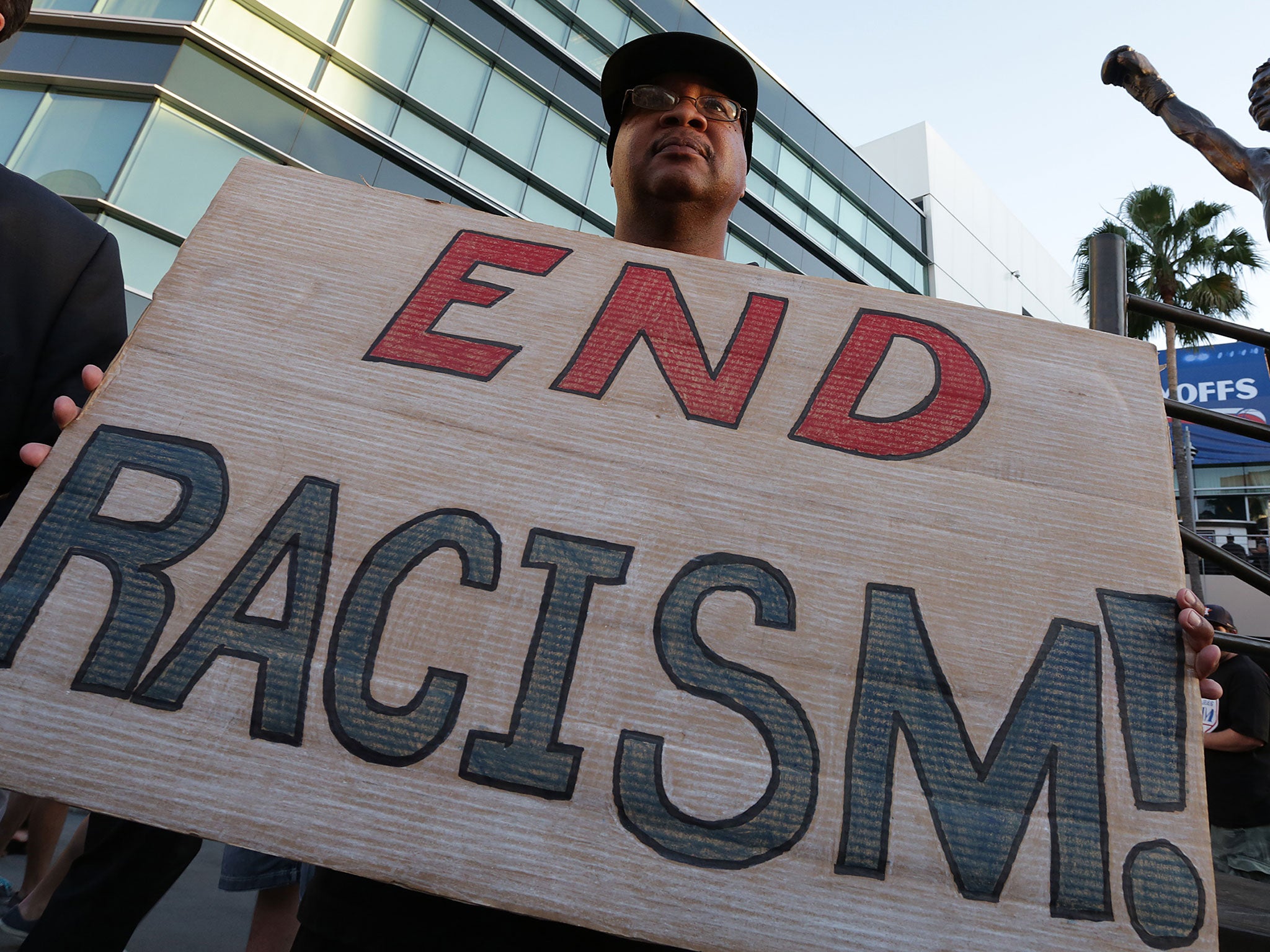If you sound 'black', Americans automatically think you're violent
Researchers into how we perceive black-sounding names brand results of their own study 'disgusting'

Your support helps us to tell the story
From reproductive rights to climate change to Big Tech, The Independent is on the ground when the story is developing. Whether it's investigating the financials of Elon Musk's pro-Trump PAC or producing our latest documentary, 'The A Word', which shines a light on the American women fighting for reproductive rights, we know how important it is to parse out the facts from the messaging.
At such a critical moment in US history, we need reporters on the ground. Your donation allows us to keep sending journalists to speak to both sides of the story.
The Independent is trusted by Americans across the entire political spectrum. And unlike many other quality news outlets, we choose not to lock Americans out of our reporting and analysis with paywalls. We believe quality journalism should be available to everyone, paid for by those who can afford it.
Your support makes all the difference.Researchers in the US say they are “disgusted” at the results of their own research showing that people make racist assumptions merely on the basis of a “black-sounding name”.
Anthropologists at the University of California, Los Angeles (UCLA) gave test subjects a short story about a character’s day, including one showing him eating breakfast, watching television, going shopping, going out with friends and accidentally bumping into a man’s shoulder.
The narrative was repeated word-for-word but the character’s name was changed to suggest varying ethnic groups, causing an astonishing change in perception.

“I’ve never been so disgusted by my own data,” said Colin Holbrook, the study’s lead author. “The amount that our study participants assumed based only on a name was remarkable.
“A character with a black-sounding name was assumed to be physically larger, more prone to aggression, and lower in status than a character with a white-sounding name.”
The study, published in the Evolution and Human Behaviour journal, aimed to understand how the human brain’s mechanism for interpreting social status evolved from the same mental systems that our early ancestors originally used to process threats.
In a series of studies involving more than 1,500 people, the researchers found that a black male stranger is perceived similarly to a white male stranger who has been convicted of violent assault.
During one version of the study, mostly white Americans between the ages of 18 and 80, who identified as left-wing, read almost identical stories.
One featured a man named Jamal, DeShawn or Darnell, and the other featured Connor, Wyatt or Garrett, which were selected based on prior research into the names most commonly associated with various ethnic groups.

In another experiment participants read a short story with one of the two types of names.
While a control group read the original “neutral” version, the others read the same story with the addition of a “successful” scenario where the character was a university graduate and entrepreneur, and a “threatening scenario” where he had been convicted of aggravated assault.
“In the ‘successful’ scenario, the white and black characters are similarly perceived,” Mr Holbrook said.
“And when the character is convicted of assault, they again have similar outcomes, no matter their name. But people imagine the neutral black character as similar in size to the white criminal character, and we know that this shift in size is a proxy for how violent and aggressive they implicitly perceive the person to be. It’s quite disturbing.”
When participants rated each character’s height, muscularity and size, the scores were statistically equivalent for the “black neutral” character and the “white criminal” character.
Not only did participants envision the characters with black-sounding names as larger, even though the actual average height of black and white men in the US is the same, but the researchers also found assumed race affected the perception of social status.
The larger the participants imagined the characters with “black”-sounding names, the lower they envisioned their financial success, social influence and respect in their community. Conversely, the larger they pictured those with “white”-sounding names, the greater they envisioned their status.
Daniel Fessler, the study’s co-author and director of the UCLA Centre for Behaviour, Evolution and Culture, said: “In essence, the brain’s representational system has a toggle switch, such that size can be used to represent either threat or status.
“However, apparently because stereotypes of black men as dangerous are deeply entrenched, it is very difficult for our participants to flip this switch when thinking about black men. For study participants evaluating black protagonists, dangerous equals big and big equals dangerous, period.”
And the racism uncovered was not only directed at black men – participants also rated characters with traditionally Hispanic names as larger, more violent and lower in status than those with traditionally East Asian names.
Researchers said they started their study after a series of high profile police killings in America driving rising anger over the treatment of unarmed young black men and the “Black Lives Matter” movement.
“I think our study participants, who were overall on the liberal end of the spectrum, would be dismayed to know this about themselves,” Mr Holbrook said.
“This study shows that, even among people who understand that racism is still very real, it’s important for them to acknowledge the possibility that they have not only prejudicial but really inaccurate stereotypes in their heads.”
David Cameron said the same issue existed in Britain during his speech closing the Conservative Party conference.
He said even a good education is not good enough for young people suffering discrimination because of assumptions based just on their name.
“What’s wrong? It’s not the qualifications or the previous experience. It’s just two words at the top (of the CV): first name, surname,” the Prime Minister said.
“Do you know that in our country today: even if they have exactly the same qualifications, people with white-sounding names are nearly twice as likely to get call backs for jobs than people with ethnic-sounding names?”
Mr Cameron cited the example of a young black graduate who had to change her name to Elizabeth on CVs before she got invited to any interviews.
“That, in 21st century Britain, is disgraceful,” he added.
Join our commenting forum
Join thought-provoking conversations, follow other Independent readers and see their replies
Comments